Viñedos Calcu: redefining the Colchagua Valley with its vineyard architecture
Colchagua Valley’s Viñedos Calcu celebrates the great diversity of its soils with its Tiny Blocks range, crafted from 166 different microplots, designed to respect the complex natural geology of the land.
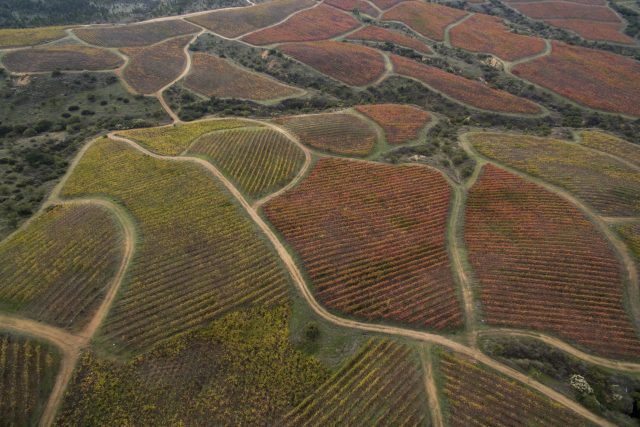
The name Calcu comes from a play on the words calel (meaning hill) and curá (meaning stone), representing the ‘Hill of Stone’ on which its vineyards lie.
Calcu began life in 2003 as a special Colchagua Valley project undertaken by the Hurtado Vicuña family, who have over a century’s worth of experience making wines in the Colchagua Valley.
The family discovered a unique stretch of land in Marchigüe, lying just 26km from the Pacific Ocean in the Coastal Mountains range marked by hills of stone, where they crafted their vineyards under the guidance of Bordeaux-based international wine consultant and vineyard architecture expert Xavier Choné.
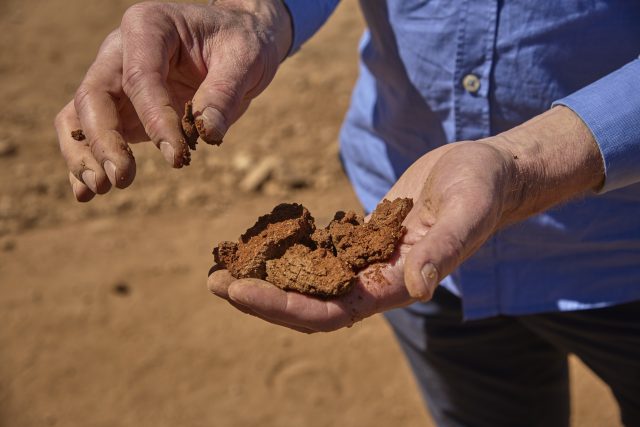
Choné is a terroir specialist whose particular skill lies in drawing maps of vineyard soils that explain exactly what is happening below the surface. He has mapped around 2,000 hectares in the Médoc as moreless 500 in Saint Emilion and Pomerol, as in Pessac Léognan and Sauternes, among other regions in France and over the world, being actually advisor for vineyards of some of the most prestigious winemaking brands in order to achieve fine, elegant and profitable wines. Xavier has been part of the team since 2005, being a key player in enhancing the existing terroir for each of the wines developed in Calcu vineyards.
The Calcu project has been undertaken by agronomist and winemaker Ricardo Rivadeneira Hurtado, who has experience in Napa Valley, France and Chile. In 2000, he joined his family’s wine project assuming the management of Viña Maquis. Since 2019 Ricardo has been on the company board as executive director of Viña Maquis and Calcu Vineyards.
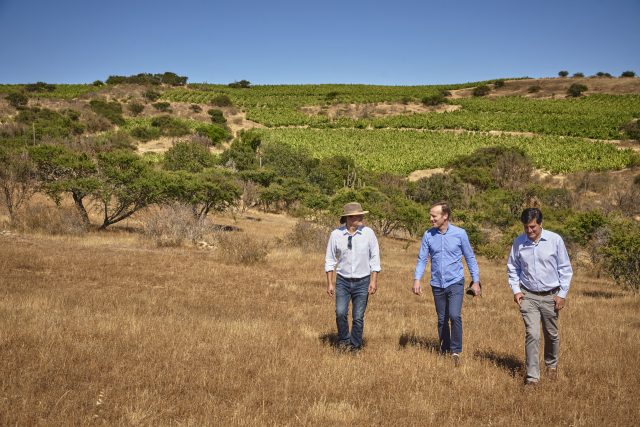
Marchigüe offers a combination of stony soils and a Mediterranean climate with a prolonged dry season and gentle sea breezes during the summer. The cool air from the ocean drastically reduces temperatures during the afternoon, creating an extended growing season compared to the more central part of the Colchagua Valley, and allowing the grapes to retain their natural acidity. Granitic soils two or three metres deep and are mixed with clay, which is rare in the area, contribute to the depth of the final wines.
Calcu has now announced a new range, named Calcu Tiny Blocks, in reference to the highly diverse microplots within its vineyards from which it produces its wines. Its ‘Hill of Stone’ has been divided into highly diverse shapes of blocks for each variety, with an average size of 0.6 hectares, with differing orientations, slopes and irregular sizes.
It took around four years to plant 100 hectares on these granitic slopes, as the 166 blocks were created without the use of machinery to avoid erosion and designed to respect the natural geology of the soils and the native flora and fauna there.
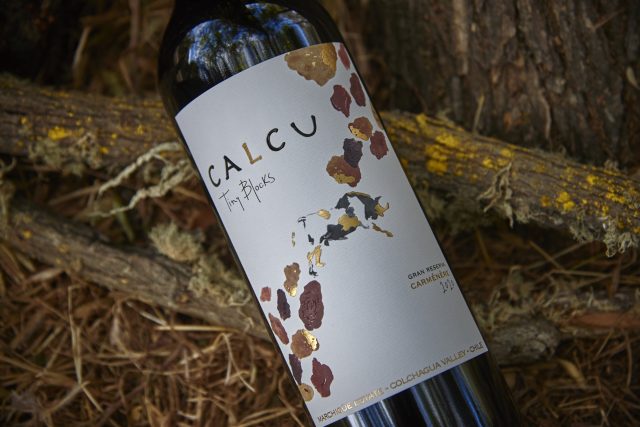
The altitude and differing orientation of the slopes reflects the personality of the vineyard. This enables each variety of Calcu wine to showcase the brand’s characteristic freshness, structure and depth. The design respected the natural seams of clay that existed and the goal was to find the ideal place for each variety to grow well and express its maximum potential.
Calcu Tiny Blocks Carmenère 2020 – Gold medal in The Global Carmenère Masters 2023
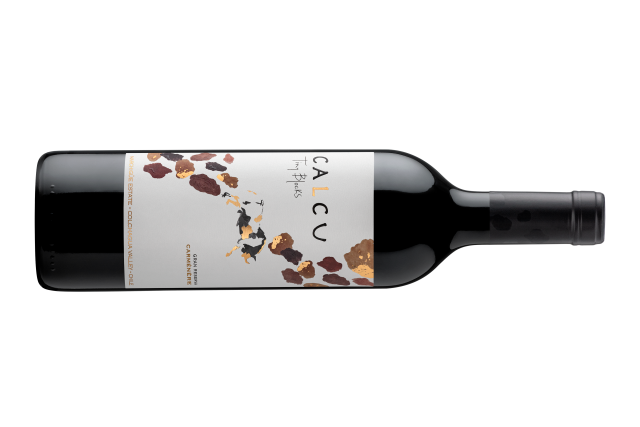
Region: Colchagua, Chile
Grape varieties: 90% Carmenère, 5% Cabernet Franc, 5% Petit Verdot
ABV: 14.0%
Vintage: 2020
Closure: Cork
Approx. retail price: £16
Partner Content
Patrick Schmitt MW: An appealing nose with some slightly stewed red berry and plums and touch of green bean. On the palate there’s some vanilla pod, then slightly jammy fruit, and touch of peppercorn, followed by a toasty finish, with plenty of fine, dry tannin. A juicy, medium-weight, ripe, spicy red with a fine structure and good balance.
Calcu Tiny Blocks Cabernet Sauvignon 2020 – Gold medal in The Global Cabernet Sauvignon Masters 2023
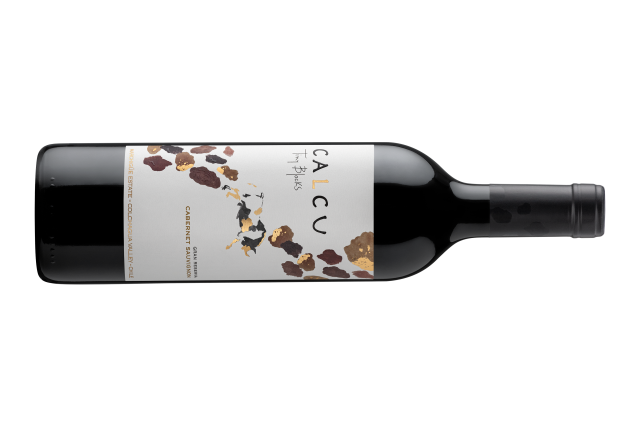
Region: Colchagua, Chile
Grape varieties: 90% Cabernet Sauvignon, 7% Cabernet Franc, 3% Petit Verdot
ABV: 13.5%
Vintage: 2020
Closure: Cork
Approx. retail price: £16
Patrick Schmitt MW: Aromatically, this is bursting with cherry and bramble fruit too with some oak shaving. The palate shows impressive intensity, with black berry, cherry and currants, with some cedar and tobacco, and a long, dry, fresh finish, with fine, mouth-coating tannins. Youthful and structured, this has the potential to soften and develop greater complexity with time.
Calcu Tiny Blocks Syrah 2020 – Silver medal in The Global Syrah Masters 2023
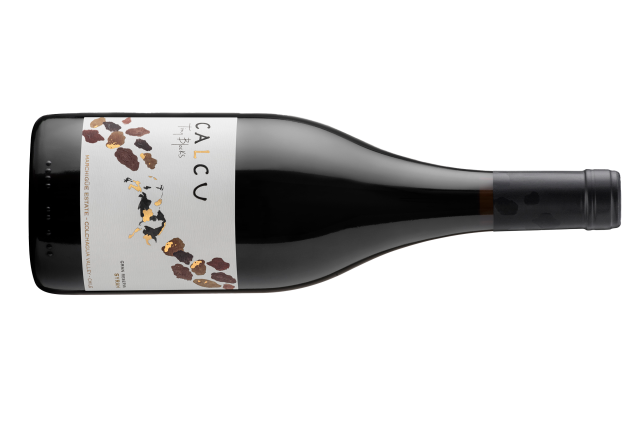
Region: Colchagua, Chile
Grape varieties: 96% Syrah, 4% Petit Verdot
ABV: 14.0%
Vintage: 2020
Closure: Cork
Approx. retail price: £17.25
Patricia Stefanowicz MW: Smoked meat, black fruits, and herbal accents, with a dry palate, featuring flavours of prunes and plums. It has a brisk acidity, and grainy tannins, with a warming finish.
Jonathan Pedley MW: A youthful, clean red with a medium flavour intensity, a mid to full body, and persistent notes of blackcurrant concentrate, with warming alcohol, and some dry fine tannins.
Calcu Tiny Blocks Sauvignon Blanc/Sémillon 2022
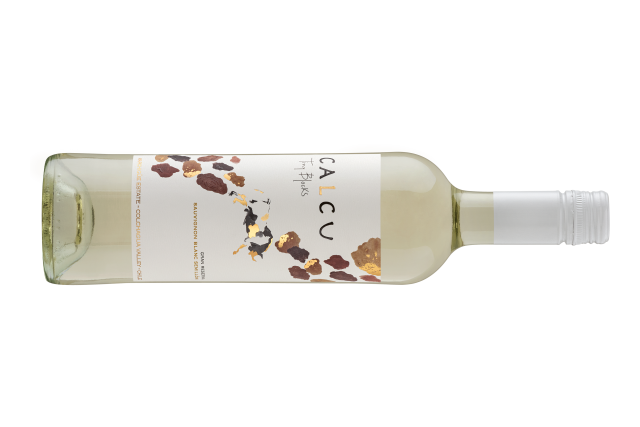
Region: Colchagua, Chile
Grape varieties: 70% Sauvignon Blanc, 30% Sémillon
ABV: 12.5%
Vintage: 2022
Closure: Screwcap
Approx. retail price: £16
Patrick Schmitt MW: Zesty lemon aromas with a touch of tomato leaf – youthful, fresh and inviting. The palate has a gently oily at core, with some ripe pear and juicy lemon but a zesty fresh finish, with touch of wet stone, and a hint of lemongrass and tomato leaf. While light and bright, it’s not thin, nor bitter, with a soft texture and some juicy fruit at its core.
Related news
The Castel Group rocked by Succession-style family rift




